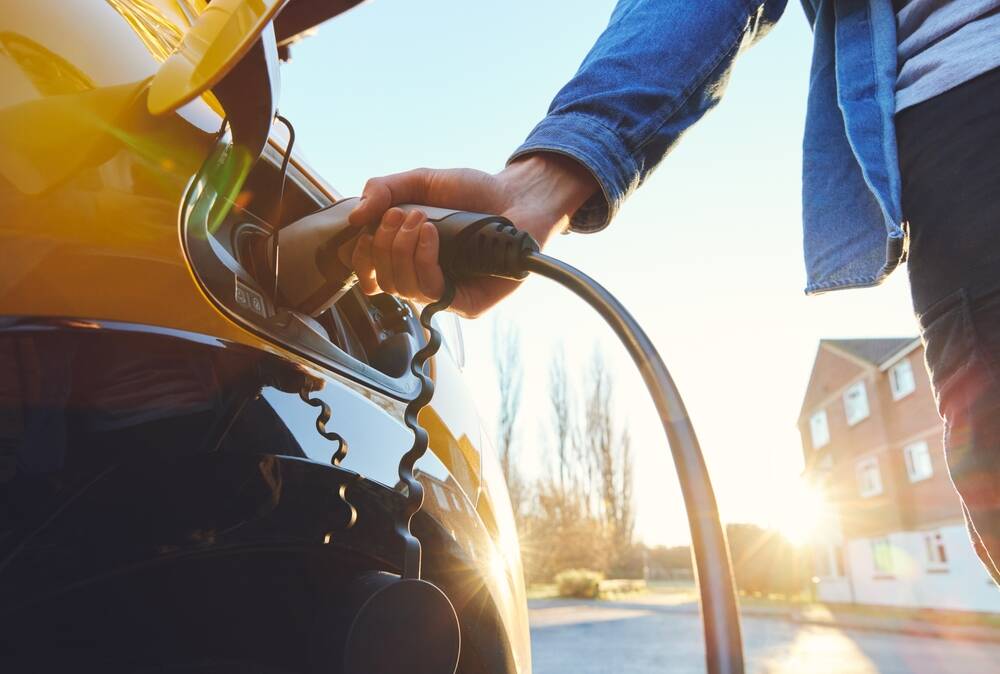Car Dealers Openly Beg Biden To Put Brakes On Electric Vehicle Drive

Nearly 4,000 US auto dealers have signed an open letter urging the Biden administration to slow its plan to push electric vehicles (EVs) onto the populace – because demand is apparently low and the darn things just aren't selling that well.
The missive puts a dealer spin on what's been reported around America - that battery electric vehicles are sitting on lots unsold now that early adopters have snagged their electric rides. Even the price cuts, manufacturer incentives, and government rebates aren't moving inventory, so the story goes.
"While the goals of the regulations are admirable, they require consumer acceptance to become a reality," the signatories wrote. "With each passing day, it becomes more apparent that this attempted electric vehicle mandate is unrealistic based on current and forecasted customer demand."
Thus, car dealers say, "we are asking you to slow down your proposed regulations mandating battery electric vehicle (BEV) production and distribution."
The letter doesn't cite specific mandates, but does mention efforts by the White House to increase the number of EVs on the road by 2032, which implies that dealers are referring to rules proposed by the US Environmental Protection Agency (EPA) in April. That proposal would create strict emissions standards for vehicles beginning with model year 2027, and while not a ban on internal combustion engines in specifically, the rules would mean BEVs or hybrids would be a much simpler solution.
Basically, the US government wants to use emissions limits to curb gasoline car sales and accelerate the uptake of EVs by motorists, and dealers aren't happy they're being forced into selling vehicles no one wants, or so that's the picture being painted.
That said, a White House spokesperson told The Register the EPA rules aren't a mandate at all since they don't force anyone to sell or buy an EV. Further, the agency didn't specify what automakers and dealers need to do to be on the right side of the EPA, though the administration did say EVs would be a suitable way to meet the clean air requirements. You don't have to sell an electric car, but it helps.
Won't someone think of the dealers customers?
The dealerships believe drivers think EV prices are too high, they lack space to charge the machines at home, and are worried about access to public chargers. Motorists are also concerned about EV range in bad weather, and truck buyers think electric driving ranges drop too drastically when towing a load.
"The majority of customers are simply not ready to make the change," the dealers noted, adding "current technology is not adequate to support the needs of the majority of our consumers."
However, the data suggests otherwise in some cases: According to the US Energy Information Administration, sales of light-duty EVs and hybrids rose to an all-time high in Q3 of this year, accounting for just shy of 18 percent of new vehicle purchases. The second quarter of the year also set a record for EV sales, per Cox Automotive, with nearly 300,000 new fully battery-electric vehicles sold over the three month period.
- Biden: I want standard EV chargers made in America by 2024 – get on it
- Biden administration to dole out $900m for electric vehicle infrastructure
- Wyoming's would-be ban on sale of electric vehicles veers off road
- Tenfold electric vehicles on 2030 roads could be a shock to the system
"More Americans are buying EVs every day—with EV sales rising faster than traditional gas-powered cars—as the President's Inflation Reduction Act makes EVs more affordable and helps Americans save money when driving," our White House spokesperson told us.
What's more, auto dealers have been reaping huge profits since the pandemic, hitting all-time highs in 2022, more than triple pre-pandemic levels. By the middle of this year profits had decreased due to high interest rates and inflation, but are well above 2019 levels.
If electric cars aren't selling, maybe dealers need to turn their gaze inward.
EVs are known to have ridiculously high markups, with models like the Chevy Blazer EV reportedly tagged with prices more than $10k over the manufacturer's suggested retail price. Korean automaker Kia earlier this month even asked dealers to not mark up its new EV9 electric SUV, priced by the company at $54,900, to pass savings on to consumers.
However, dealers tend to make most of their money from service, used car sales, warranties and accessories - not new car sales. EVs, with fewer moving parts and less bits to repair, need a lot less maintenance - in other words, cutting further into dealers' bottom lines.
The Register didn't get a response from the group of dealers that signed the letter. ®
From Chip War To Cloud War: The Next Frontier In Global Tech Competition
The global chip war, characterized by intense competition among nations and corporations for supremacy in semiconductor ... Read more
The High Stakes Of Tech Regulation: Security Risks And Market Dynamics
The influence of tech giants in the global economy continues to grow, raising crucial questions about how to balance sec... Read more
The Tyranny Of Instagram Interiors: Why It's Time To Break Free From Algorithm-Driven Aesthetics
Instagram has become a dominant force in shaping interior design trends, offering a seemingly endless stream of inspirat... Read more
The Data Crunch In AI: Strategies For Sustainability
Exploring solutions to the imminent exhaustion of internet data for AI training.As the artificial intelligence (AI) indu... Read more
Google Abandons Four-Year Effort To Remove Cookies From Chrome Browser
After four years of dedicated effort, Google has decided to abandon its plan to remove third-party cookies from its Chro... Read more
LinkedIn Embraces AI And Gamification To Drive User Engagement And Revenue
In an effort to tackle slowing revenue growth and enhance user engagement, LinkedIn is turning to artificial intelligenc... Read more

